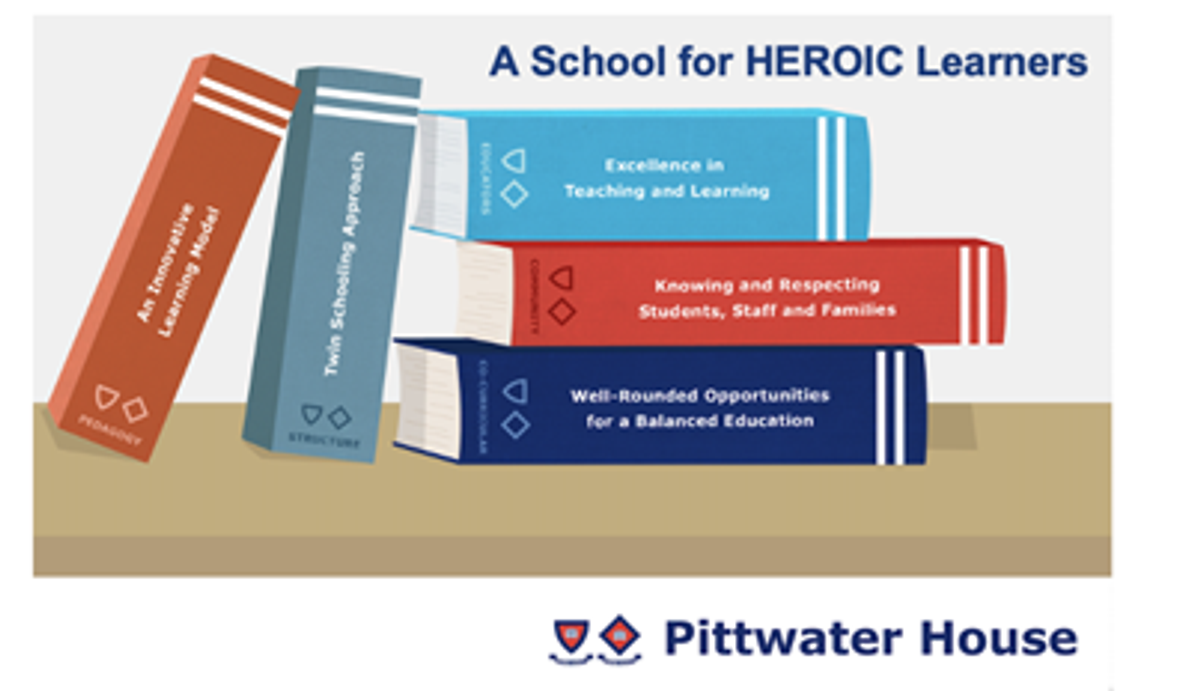From the Head of Teaching and Learning
Mrs Jasmin Mano

From the Head of Teaching and Learning
Mrs Jasmin Mano
In my last article of House News, I began the journey of unpacking our Pittwater House Learning Framework. It is my pleasure to present the second of five volumes that frame our ‘School for HEROIC Learners’: Our ‘Twin Schooling Approach’.


We value our co-educational campus for the bespoke design it affords our learners that indeed allows ‘the best of both worlds’. We ‘see’ and ‘know’ our students as individuals with particular learning dispositions and preferences and we tailor learning to suit these. We know that there is no difference between the male and female brain, but what we do know is that girls and boys given the right classroom environment will flourish in their learning. Happy learners are confident learners. When girls feel safe to take risks in learning with their male counterparts, they are more inclined to try ‘harder’ and show resilience. They are more likely to form a greater sense of belonging to their school and choose traditional male-dominated subjects such as STEM than students at girls’ schools. Likewise, boys enjoy solving problems and collaborating with their female peers, when they are encouraged and ‘challenged’ to do so. As humans we are a ‘connected species.’ Our colleague: Dr. Mark Williams in his new book - ‘The Connected Species’ states that it is ‘our ability to socialise and connect that catapulted our species to phenomenal heights of innovation, through collaboration and specialisation. This drive has fine-tuned our unconscious perception of faces, facial expressions, body language, and touch. Our primitive drive to connect changes how we perceive the world and the people around us.’ Thus, the large playground spaces and developing building project will ensure that our students continue to connect to each other socially, to ensure they connect to their learning. We know that our unique ‘twin schooling’ structure ensures our students thrive, academically, physically, and socially.
Our 2023 NAPLAN data is testament to our student growth in our co-educational context, as the below image captures the impressive Pittwater House School Averages against the National Results. Of note, as a snapshot of the ‘typical’ trends NAPLAN can tell us, our Year 9 boys are demonstrating a strength in Writing and our Year 5 Girls in Numeracy.
Pittwater House School Averages v. National Results:
Year 3 | Top 20% |
Year 5 | Top 25% |
Year 7 | Top 20% |
Year 9 | Top 25% |
How Twin Schooling Works:
We call it ‘twin schooling’, and you might have heard it called ‘parallel education’ or ‘gender-biased learning’. What is twin schooling? It’s single-sex classes on a co-educational campus. It gives your child all the advantages of gender-specific teaching combined with the many social benefits of a co-educational campus.
Real-world Learning
We provide a finely tuned blend of single and mixed-gender learning to ensure your child is equipped for the real world. Although our Pre-Kindergarten classes are fully co-educational, our Kindergarten to Year 2 students participate in mixed-gender ability-level groups for Reading, Phonics and Maths only. All other classes are single sex. From Year 3 to the end of Year 8, all classes are taught in single-sex classrooms, with teachers utilising gender-based strategies to optimise learning and confidence.
In Years 9 and 10, students participate in mixed-gender classes for three elective subjects but continue to have single-sex classes for English, Maths, Science, History, Geography and Personal Development, Health, and Physical Education (PDHPE). Form classes, which are the cornerstone of our pastoral care programs, remain single sex all the way from Kindergarten until Year 10. This ensures a nurturing and safe environment where students feel comfortable raising sensitive issues.
By Years 11 and 12, all classes including Form classes are mixed, to prepare students for life after school.


Advantages of Twin Schooling
Research shows psychological differences between how males and females think, communicate, behave, and learn. For example, boys prefer problem solving and activity-based learning whereas girls benefit from co-operative learning achieved in small groups. Our teachers use gender-specific strategies specially designed for an all-boy or all-girl classroom and provide engaging subject matter tailored by gender. Using this approach, we find students are less distracted, have a greater sense of achievement and higher self-esteem. At the same time, students can socialise in stage-appropriate co-educational playgrounds and spaces between classes and participate in co-educational school events and co-curricular activities. That’s where our campus really shines. Neurological research suggests that completely separating boys and girls changes their ability to empathise and understand the other gender. Hence, our students develop the skills and confidence to work, collaborate and relate with the opposite sex, setting in a ‘teacher-framed, student-led’ Deep Learning environment that sets them up for success at university and in the workplace.